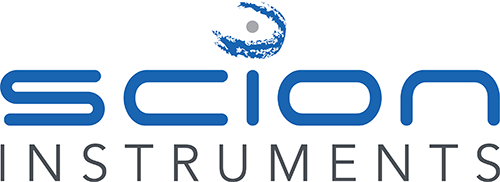Catalysts in Chemistry
Catalysts accelerate chemical reactions, making processes more efficient and environmentally friendly. At the same time, gas chromatography (GC) plays a crucial role in studying and optimizing catalytic processes, helping chemists achieve greater precision and effectiveness.
In various industries, catalysts serve as essential components for petrochemicals, pharmaceuticals, and environmental management. Not only do they boost reaction rates without being consumed, but they also ensure sustainable and cost-effective production. However, in order to maximize their performance, detailed analysis becomes necessary—this is where gas chromatography excels.
Specifically, gas chromatography enables chemists to separate, identify, and quantify components within complex mixtures, providing critical insights into reaction mechanisms and product distributions. This technique works by vaporizing samples and passing them through a chromatographic column, where different compounds separate based on their interactions with the stationary phase. Moreover, when coupled with detectors like mass spectrometry (GC-MS), GC delivers high specificity and sensitivity for catalytic reaction analysis.
Furthermore, SCION collaborates with customers to provide Gas Chromatography solutions that improve efficiency across various industries. By utilizing SCION GC, you can optimize reaction conditions, enhance catalyst performance, and boost overall process efficiency. To learn more, explore our case studies.
If you need assistance or are interested in catalyst solutions, feel free to reach out to us.
Catalysts in Industry
Gas chromatography enhances the applications of catalysts in multiple industries and research fields. Below are key sectors where GC optimizes catalytic processes:
Petrochemical Industry
Gas chromatography plays a vital role in catalytic cracking and reforming processes. It identifies and quantifies hydrocarbons and by-products, ensuring catalysts function efficiently and selectively. This results in higher yields of gasoline and other fuels while minimizing unwanted by-products.
Pharmaceuticals
The pharmaceutical industry relies on gas chromatography to monitor catalytic reactions during the synthesis of active pharmaceutical ingredients (APIs). GC ensures the purity of final products, optimizes reaction conditions, reduces costs, and enhances efficiency.
Environmental Analysis
Gas chromatography helps develop catalysts for pollution control and greenhouse gas reduction. Researchers use it to monitor catalytic converters in vehicles and industrial emissions, improving catalyst performance and reducing harmful pollutants.
Renewable Energy
In renewable energy, gas chromatography aids in developing catalysts for biomass conversion and hydrogen production. It analyzes bio-oils and syngas composition, optimizing catalysts that transform these materials into renewable fuels and chemicals.
Food and Beverage Industry
GC ensures product safety and quality by analyzing flavor compounds and contaminants. The food industry uses catalysts to produce additives and preservatives, and GC monitors these processes for efficiency and high-quality results.
Materials Science
Gas chromatography supports the development of catalysts for advanced materials such as polymers and nanomaterials. By analyzing catalytic reaction intermediates and products, researchers refine material properties for applications in electronics, coatings, and biomedical devices.
Academic Research
Researchers use gas chromatography to explore fundamental aspects of catalysis. It helps identify transient species, study reaction mechanisms, and develop new catalytic materials, driving innovation across industries.
By integrating gas chromatography into catalytic applications, industries and researchers enhance efficiency, sustainability, and cost-effectiveness. GC’s precision, versatility, and real-time monitoring make it an indispensable tool in advancing catalysis.
Through real-life case studies and practical insights, SCION can illustrate how Gas Chromatography can be leveraged to enhance the efficiency, selectivity, and sustainability of catalytic processes. Whether you are a researcher, a process engineer, or an industry professional, you will gain valuable knowledge to advance your understanding and application of catalysts using gas chromatography. Read our case studies now:
Toluene hydrogenation – Case Study
CO2 methanation – Case Study
Propane Aromatization – Case Study
Ammonia synthesis – Case Study
Toluene Methanolation – Case Study
